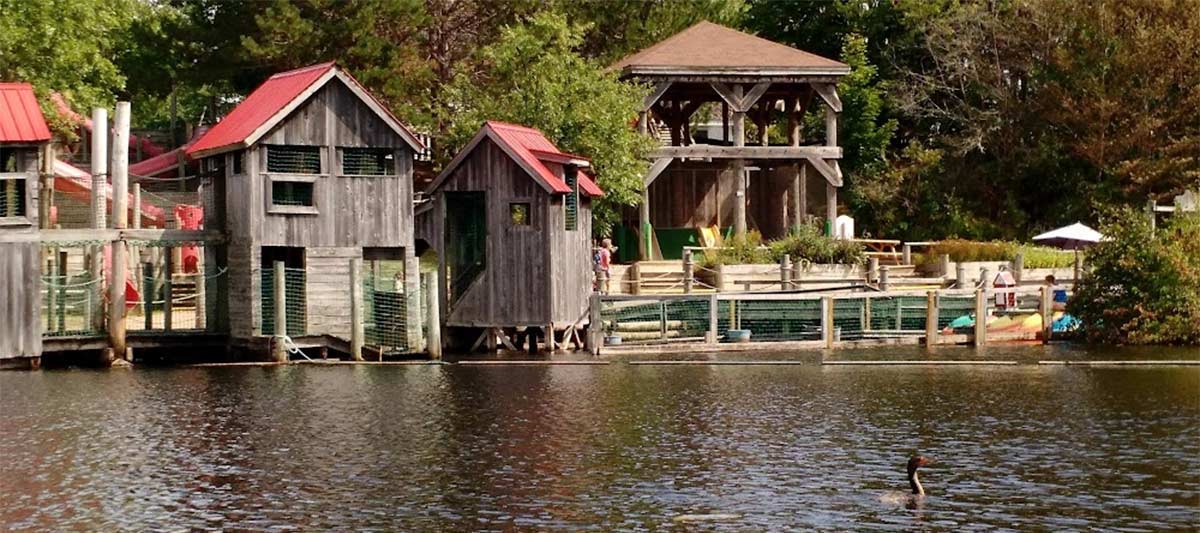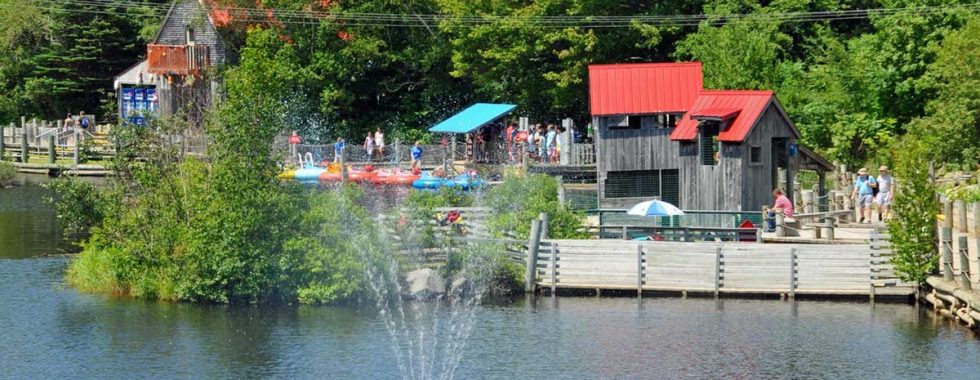Upper Clements Park will forever be etched in Chad R. MacDonald’s memory as the setting where his life took a dramatic turn for the better.
As a 19-year-old trying to figure out his place in the world, he was there the year it opened.
“By 1989, I was completely lost. Having dropped out of university after one try, I was barely making ends meet in Halifax by working in fast food restaurants.” Then, he wrote in a recent Facebook post, “I received a job offer at Upper Clements Park.”
To “bring it to life,” Nova Scotia needed a troupe of entertainers for their experimental theme park featuring attractions such as a miniature train, roller coaster, flume ride, and more.
MacDonald played the role of Clyde D. Pratfall, a comedic conductor on the park’s signature miniature train, for the first three seasons at what was then known as Upper Clements and would later be renamed simply Upper Clements in Nova Scotia.
The provincial government invested $23 million to pave the way for the development of the theme park. It had the potential to be a game-changer for Nova Scotia’s economy.
MacDonald has fond memories of the early days, when there would be lines and lines of people.
In August 2019, he recalled, “I’ll never forget how crazy it was when the park opened.”
Due to the fact that “the amusement park became a political soccer on the eve of its opening,” the opening day attracted enormous crowds, and the media presence was absolutely insane.
In the midst of all the media attention, MacDonald was given the task of giving an impromptu Pratfall performance that would leave the audience wanting more.
Even though it happened a long time ago, MacDonald still considers the time Pratfall made Premier John Buchanan laugh to be a watershed experience.
Later, he attended college on a full scholarship and became a well-known author, speaker, and performer in New York.
In order to reconnect with former coworkers and fellow performers, MacDonald visited the park last summer.
His young son, a train enthusiast, accompanied him.
According to MacDonald, the group intended to make this a yearly event.
“Understandably, I am sad to see Upper Clements Park close. But I do hope the people of the Valley will look back on it with fondness and not as an afterthought.”
MacDonald considers this location a lucky find. It was a friendly environment where he made new friends. A safe haven where his disguise of Clyde D. Pratfall allowed him to flourish.
“Rather than lament its passing, I intend to rejoice in it and all that it meant to me while it lasted. Not often do we get a chance to take one last look back at a time in our lives that we look back on with fondness,” he wrote on Facebook. “But I was given that opportunity, for which I am eternally grateful.”
The Park’s Steady Decline
In 1995, local farmer David Brown began serving as a volunteer on the board that oversaw the former Upper Clements Wildlife Park.
He remained with the company after the 1997 merger of the wildlife and theme park boards and again after the closure of the wildlife park in 2009.
He has recently been appointed as the society’s chairman for Upper Clements Parks.
“I just wanted to do what I could to keep it open as long as possible because I live nearby.” Brown, whose home is halfway between the park and Annapolis Royal, remarked on the significance of the event for the local community.
He claimed that board members had known something was up for a long time.
As one critic put it, “the park never made the money it needed.”
The nonprofit organization, according to Brown, had to deal with falling attendance while also maintaining thirty or more structures, rides, water systems, and electrical infrastructure.
“It’s the size of a small village. The maintenance costs are high,” he said.
“The park has steadily declined over the past few years, but especially in the last two.”

Brown said the estimated cost to make the necessary upgrades and repairs was around $2 million.
He explained, “You wish only to invest in a business that you know is going to advance.”
He also noted that even with government assistance, the park’s gate receipts would not be sufficient to cover operating expenses.
There were about 150 people working at Upper Clements last summer, including about 60 students.
There were 12 wet days in 2019.
Brown stated that this winter the board could either file for bankruptcy, sell the land and assets, or upgrade the park with no guarantee of future financial stability.
The Board of Directors’ decision was not made lightly. The lack of funds led to an inevitable conclusion: the company is doomed to fail.
From Old to New
The municipal council of Annapolis County, Nova Scotia, approved a motion on March 17 to spend $600,000 to buy three adjacent parcels of land for Upper Clements Park.
The Upper Clements Park Society is selling land to the municipality, and it will be used “exclusively for the development of the Gordonstoun Nova Scotia project, the first franchise to open for this prestigious educational institution.”
It was announced in 2018, but now that the site has been chosen, the $62 million boarding school can get started. Brown opined that the neighborhood would benefit more from the change than the park itself, given that the latter had been insecure for some time.
Brown said that once the sale is finalized, the municipality will assume responsibility for all of the society’s assets, including the land, the buildings, the rides, etc.
Once the sale is finalized, “there will be no money left and there will be no debt,” he said.
Brown believes the proposed Gordonstoun development will, at some point in the future, compensate for the amenities that were lost when Upper Clements Park was closed.

